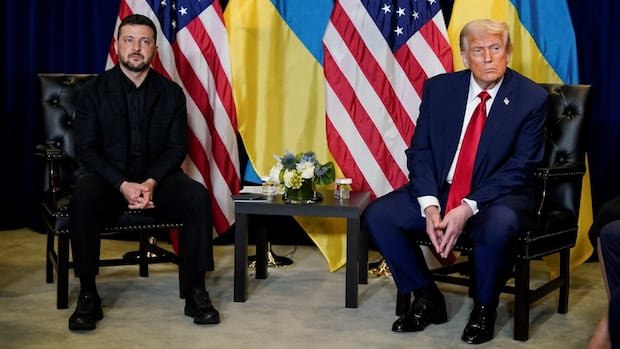The Trump administration’s support for Ukraine appears contingent on benefits for the United States, according to European observers. Many believe President Donald Trump’s recent shift towards backing Ukraine is a strategic move rather than a genuine commitment to peace efforts. Some experts view this move as a deliberate step back from the ongoing conflict, suggesting that Trump may be relinquishing control to European allies.
Without providing a clear rationale, Trump expressed optimism on social media about Ukraine regaining its territories with European assistance. This change in tone received widespread praise, with Ukrainian President Volodymyr Zelenskyy commending Trump for his understanding of the situation on the ground.
European leaders welcomed Trump’s change in position, but Polish Prime Minister Donald Tusk cautioned that the shift may indicate reduced U.S. involvement in resolving the conflict. Tusk emphasized the need for realistic approaches rather than wishful thinking.
There are speculations that the U.S.’s growing economic interests in Ukraine’s critical minerals sector and potential drone deals worth billions could be influencing Trump’s stance. Zelenskyy’s offer to collaborate on drone technology with Western nations aligns with ongoing negotiations for a significant drone deal that could benefit the U.S. military.
Despite these economic incentives, some experts, like Matthew Schmidt, believe Trump’s motivations extend beyond financial gains. Schmidt argues that Ukraine’s self-sufficiency and military capabilities are key factors driving Trump’s evolving stance.
Ukraine’s recent drone campaign targeting Russian oil refineries has demonstrated its strategic capabilities, resulting in significant disruptions to Russia’s refining capacity. These attacks have impacted major refineries like Ryazan, Volgograd, and Salavat, leading to a decrease in domestic and export petroleum products.
Overall, Trump’s shifting stance on Ukraine continues to spark debates among analysts and policymakers, with differing interpretations of the underlying motives behind the administration’s evolving position.

